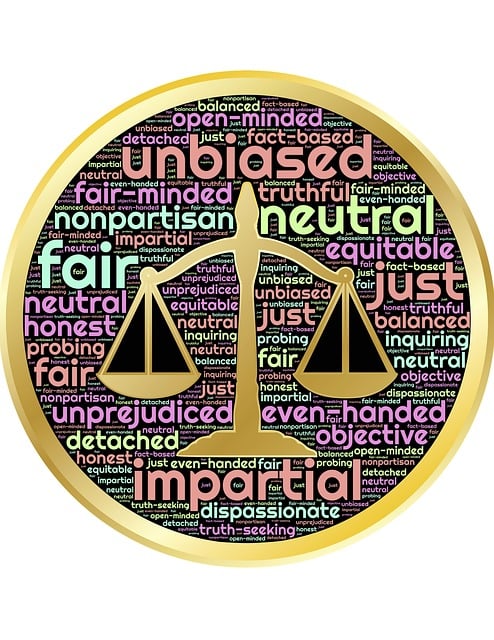Healthcare Regulatory Litigation Strategies are vital for medical institutions to navigate complex regulations related to patient care, data privacy, and insurance coverage, reducing legal risks, strengthening trust, and defending against litigation with a proven track record. Proactive strategies include regular compliance audits, employee training, meticulous documentation, expert witness use, and clear protocols for handling patient data and billing practices, minimizing exposure to penalties, lawsuits, and reputational damage.
In the dynamic landscape of healthcare, navigating legal issues is paramount. This article delves into the critical aspects of healthcare regulatory compliance and litigation strategies. Understanding the intricate web of healthcare regulations is essential to mitigate risks and ensure operational integrity. We explore common legal challenges faced in healthcare litigation, providing insights for effective defense mechanisms. By examining best practices for regulatory compliance, healthcare providers can foster a robust framework, thereby enhancing patient care and outcomes while managing potential legal complexities. Discover proven strategies to adeptly navigate healthcare regulatory litigation.
- Understanding Healthcare Regulations and Compliance
- Common Legal Challenges in Healthcare Litigation
- Effective Strategies for Regulatory Compliance and Defense
Understanding Healthcare Regulations and Compliance

In the dynamic landscape of healthcare, understanding and adhering to regulations is paramount. Medical institutions and professionals must navigate a complex web of federal and state laws governing patient care, data privacy, and insurance coverage. Effective compliance strategies involve staying abreast of evolving Healthcare Regulatory Litigation Strategies, ensuring policies align with current standards, and implementing robust internal controls. This proactive approach not only mitigates legal risks but also fosters trust among patients and stakeholders.
A strong grasp of healthcare regulations empowers providers to develop winning challenging defense verdicts in litigation. With an unprecedented track record of success, general criminal defense strategies tailored to the healthcare sector have proven effective in defending institutions and individuals against charges, ensuring that operations remain uninterrupted and reputations intact.
Common Legal Challenges in Healthcare Litigation

In healthcare litigation, several common legal challenges emerge due to the intricate nature of medical practices and patient care. One significant aspect is navigating healthcare regulatory frameworks, which vary across jurisdictions but share similar goals of ensuring patient safety and ethical standards. Compliance issues can lead to complex litigations where corporate and individual clients alike face charges of malpractice, non-compliance with regulations, or even indictment for negligence. Understanding the specific legal requirements and continually adapting to evolving guidelines is paramount in preventing these challenges.
Litigants involved in healthcare disputes often employ strategic litigation strategies to address the complexities. These include meticulous documentation of medical procedures, patient histories, and informed consent forms to establish a robust defense. Additionally, expert witnesses play a crucial role in interpreting complex medical evidence and providing insights that can sway jury decisions in favor of winning challenging defense verdicts. For organizations, proactive measures such as regular compliance audits and comprehensive training programs help avoid indictment by fostering a culture of adherence to healthcare laws and regulations.
Effective Strategies for Regulatory Compliance and Defense

Staying ahead of healthcare regulatory changes is vital for mitigating risks and avoiding costly litigation strategies. A robust compliance framework is the cornerstone of successful defense against potential legal issues. This involves meticulously studying and implementing all relevant regulations, guidelines, and industry best practices to ensure adherence across all aspects of healthcare operations. By fostering a culture of compliance within organizations, providers can minimize exposure to penalties, lawsuits, and reputational damage.
Proactive litigation strategies are key to safeguarding interests in the face of regulatory scrutiny. This includes regular audits, employee training, and establishing clear protocols for handling patient data, consent forms, and billing practices. Additionally, having an experienced legal team ready to navigate complex healthcare regulations is invaluable. Their expertise in crafting defensive strategies, such as negotiating settlements or mounting effective defenses in jury trials, can significantly influence the outcome of regulatory disputes, especially given the unprecedented track record of successful resolutions for corporate and individual clients.
Navigating healthcare regulatory compliance and litigation requires a strategic approach. By understanding complex regulations, identifying common legal challenges, and implementing effective strategies, healthcare providers can mitigate risks and ensure robust defense mechanisms. These practices are essential components of a successful healthcare organization, fostering a culture of adherence to laws and regulations while promoting patient safety and satisfaction. Adopting these strategies enables healthcare entities to stay ahead in the dynamic landscape of medical law, ensuring long-term success and sustainability.






